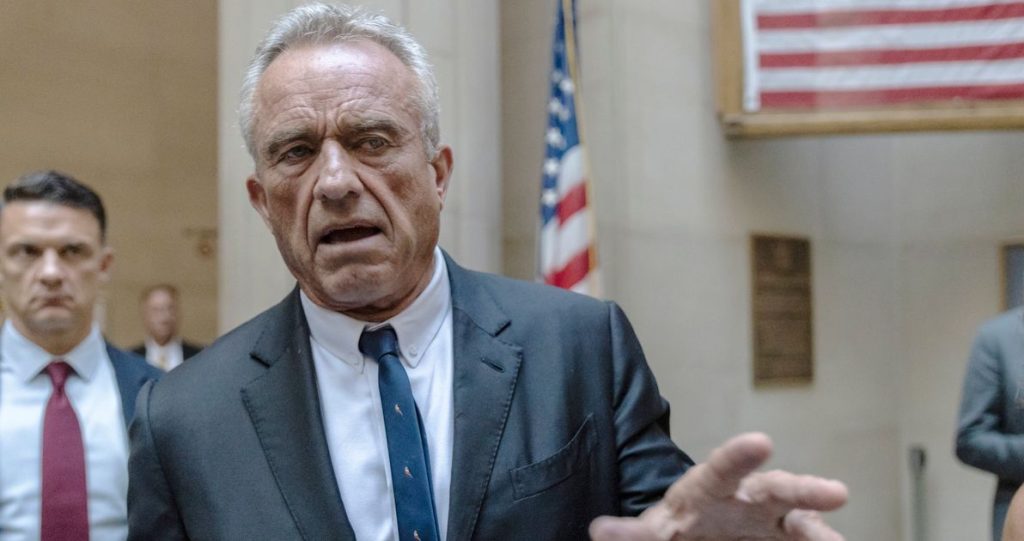Robert F. Kennedy Jr. has withdrawn from the presidential ballot in Arizona just before a scheduled appearance near Donald Trump, leading to speculation that he may drop his independent bid and endorse the Republican nominee. Trump and Kennedy were set to be in Phoenix at the same time, with rumors swirling about a possible collaboration between the two campaigns. Kennedy’s Arizona withdrawal came after concerns were raised about the legitimacy of some of the signatures on his ballot petition, potentially violating rules against coordination with political groups.
Despite a history of animosity between the two candidates, recent conversations and compliments exchanged indicate that Kennedy and Trump have been considering working together to limit Democratic nominee Kamala Harris’s chances in the election. Kennedy’s son shared and then deleted a video of Trump attempting to persuade Kennedy to support him. Talks between the two camps have continued, with Trump expressing his desire for Kennedy’s endorsement and even suggesting a role for him in his administration. Kennedy’s running mate also implied that they may join forces with Trump, with speculations of Kennedy potentially filling a role in the Department of Health and Human Services.
Kennedy, a member of the prominent Kennedy family and a vocal advocate against vaccines, faces a declining momentum in his campaign and mounting legal obstacles. Despite attracting anti-establishment voters and vaccine skeptics, recent polls show his support in mid-single digits, with doubts about his chances in a general election. His decision to address the public in Phoenix comes at a critical juncture in his campaign, as he navigates financial challenges and legal setbacks that threaten his candidacy. The outcome of his announcement could have significant implications for the election dynamics between Trump and Harris.
As Kennedy’s potential withdrawal from the race could impact Trump more than Harris, the latter’s campaign has expressed openness to welcoming Kennedy supporters. Harris’s communications director emphasized the campaign’s inclusive approach toward voters looking for an alternative to Trump and seeking a new direction for the government. With the focus shifting to battleground states and policy issues, Trump’s events in Pennsylvania, Michigan, North Carolina, and Arizona have centered on his proposals for the economy, crime, national security, and border security. The week concludes with visits to Las Vegas and Glendale, marking the culmination of a series of campaign efforts aimed at countering the Democrats’ momentum.
The evolving dynamics between the Kennedy and Trump campaigns reflect a potential realignment in the political landscape, where traditional party lines are blurred in pursuit of shared objectives. While Kennedy’s independent bid initially garnered support from disillusioned voters, his collaboration with Trump could reshape the electoral calculus and influence voter perceptions. As the candidates navigate the complexities of the campaign trail, their strategic moves and public statements offer insights into the shifting alliances and strategies shaping the upcoming election. The outcome of Kennedy’s decision and its impact on the presidential race remain uncertain, highlighting the unpredictable nature of politics and the unpredictable alliances that emerge in the pursuit of power.


